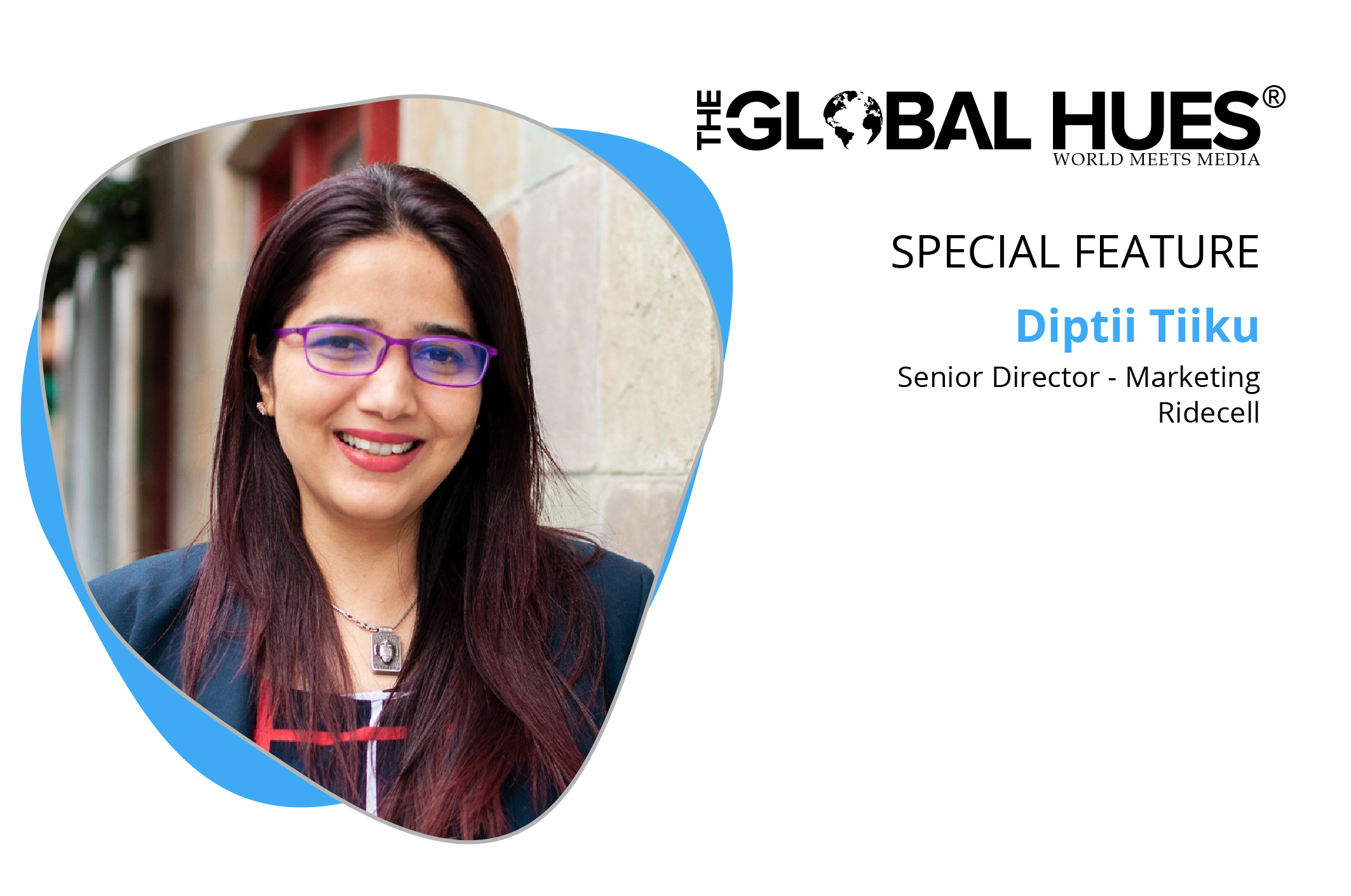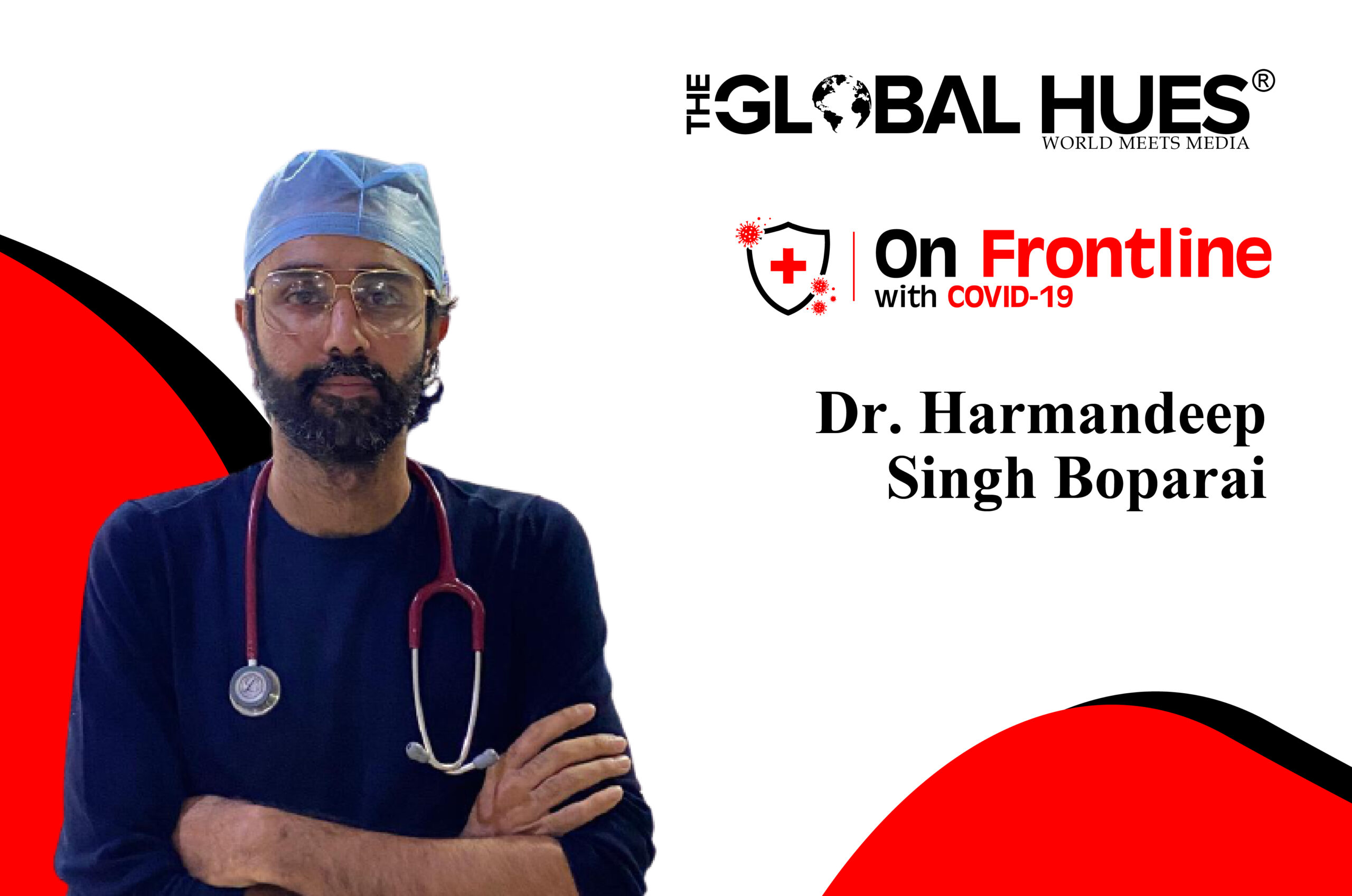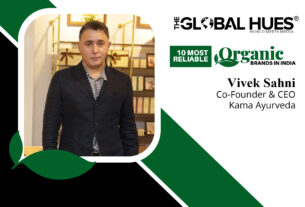For decades now, traditional marketing has been replaced with digitized solutions. In parallel, for the longest time, women limited in certain roles have eventually broken the glass ceiling to transform into fierce, focused, and fabulous businesswomen. One such woman, who has revolutionized a historically male-dominated industry of marketing, is Diptii Tiiku, Senior Director of Marketing, Ridecell– a leading platform powering digital transformation for fleet-based businesses, headquartered in San Francisco with offices in Madrid, Paris, Berlin, and India.
The Ridecell Fleet IoT (Internet of Things) Automation solution modernizes and monetizes fleets by combining data insights with digital vehicle control to turn today’s manual processes into automated workflows. The result is unmatched levels of efficiency and control for shared services, motor pools, rental, and logistic fleets. Today Ridecell is powering some of the most successful fleet businesses in cities across Europe and North America, including Ferrovial, Groupe Renault, Gig Car Share from AAA, and Toyota Sweden.
Personifying a result-oriented, unpretentious, independent, self-motivated, optimistic individual who diligently transverses the path to achieving, Diptii enjoys the reputation of chairing a front-runner in the industry with a name that has ripened since she rooted it years ago. Leveraging her 18 years of expertise, Diptii has managed to turn marketing into a powerful revenue-driving force for enterprise and startups across North America, EMEA, recognized for building strategic marketing plans to realize full-funnel growth.
While talking about her journey at Ridecell, Diptii shared, “I joined Ridecell as the first marketing hire with the responsibility of building the marketing function. It’s been a great opportunity to apply my integrated marketing experience across sales, marketing, and customer research to build something from the ground up. Over the last five years, I’ve created a major impact for the company, working extensively on messaging, communication, and brand, PR, and B2B demand generation techniques.
The role has also allowed me to add new skills such as account-based marketing and PR to my skill set. Today, we are recognized as the leading platform in our industry. As we continue to expand to Europe and APAC, I’m now looking forward to leveraging my APAC experience to create further impact by establishing Ridecell as a thought leader in these geographies and driving revenue impact.”
The Journey from a Relationship Manager to a Renowned Marketer
“My marketing journey was winding and unconventional, but I knew I had found my true passion once I got here. I started out as a pharmacist. Intrigued by the business side of things, I decided to pursue an MBA, intending to build my career at a pharmaceutical company. Instead, I ended up in banking as a relationship manager. This unexpected role gave me a glimpse into the psyche of a customer. I saw how the different forces—sales strategy, advertising, brand, distribution network, level of service, etc.—impacted the buying decision.
opportunity to really dig into consumer buying behaviour, I made the move to a market research firm where I worked with some of the top brands in the country. I analyzed brands and markets, examined perceptions, understood segmentation and distribution strategies, and used all these pieces to formulate marketing strategies. It was a diverse role that gave me a broad understanding of consumer behaviour, but I still found myself wanting to put this understanding to work. My next move allowed me to do this. I took a role with the marketing team at Standard Chartered Bank, where I could bring the strategies I designed to live and see the real-world impact they had on buying behaviour” said Diptii.
“Then after working for about 13 years, I decided to pursue a Masters in Management degree from the Stanford Graduate Business School to hone my leadership skills further and add a global perspective to my experience. After graduating, I wanted to apply my integrated brand and marketing experience in building something from the ground up. So I joined Ridecell, a fast-growing startup in the Fleet IoT space in Silicon Valley. My journey over the last 18+ years has helped me develop a unique craft.
My foundation has been in customer insights and sales. And that, combined with my integrated marketing experience, gives me a distinct advantage. I’ve worked with both B2B and B2C brands. I’ve worked for Fortune 500 companies building processes and doing things at scale and startups where we’ve had to build things from the ground up. And had the opportunity to work in and with distinctly different geographies and cultures–North America, Europe, and Asia–marketing products and services that have a real impact on people’s lives”, she further added.
Different Marketing Strategies
There is no denying that growing or scaling any business requires a solid marketing plan with clear and concise steps. However, there is certainly no one-size-fits-all approach while designing and implementing effective marketing strategies. It really does boil down to understanding your core value proposition, identifying the true value you offer, analyzing the competitive landscape, and then implementing a curated strategy that addresses the business’s short-term and long-term goals. Also important is pivoting and making adjustments along the way depending on what works best for your business.
From a B2B marketing standpoint, especially more so after COVID, B2B firms will have to adopt a digital-first philosophy for marketing and sales. Diptii finds content marketing – focusing on personalization and video content – AI-powered marketing, including AI-generated content, predictive analytics, lead scoring, chatbots, account-based marketing, and search engine optimization as effective strategies for B2B business in 2021.
From a B2C marketing standpoint, there will be an increased focus on social media marketing, influencer marketing, search, video and personalization, and branded partnerships. In 2020, the pandemic and the global human rights movement with the murder of George Floyd also accelerated a trend where consumers are increasingly looking to buy products and services from companies that share their values and deeply care about these causes. So, brands will need to evolve their messaging and communication strategy to build trust and compassion with customers.
How Indian Market is Different from the US Market?
American companies tend to have a flat hierarchy structure, unlike Indian companies. There is less focus on superiority, and everyone has a voice irrespective of seniority. This tends to create a healthier working environment. On the flip side, sometimes this leads to diffusion of responsibility. Communication style also varies significantly. In the US, it’s more straightforward, concise, and explicit, while in India, it tends to be indirect, authoritarian, and implied. Written communication tends to mirror the verbal communication style with direct asks, agreed actions, outcomes, and deliverables.
Lastly, from a work-life balance perspective, western countries certainly lay a premium on their time and strike a better balance between work and personal commitments. Adhering to deadlines and having a time management system in place is also very important. In India, we need to be more explicit with employees in terms of what is required and by when.
Growth Opportunities for Women in the Marketing Industry
Diptii believes that women make great marketers! And one of the reasons for that is women intrinsically tend to be more sensitive, display greater empathy and intuition, and tend to be better at multitasking. Marketing as a profession has changed enormously over the last decade. Within marketing and branding, there are numerous areas of specialization today that one can focus on. The choices are varied from category specialization like B2B, B2C, B2B2C, to discipline specialization like communications and PR, digital marketing, demand generation, integrated marketing, product marketing, marketing operations, account-based marketing, social media, etc. The choices are plenty.
She advises
“Women marketers, should not be afraid to try new things and new roles— especially early on in your career. This will give you some perspective about yourself and what you actually want to do before settling into a career path”.
Also Read:
- Top Six Social Media Marketing Tips For Small Businesses
- How Account-Based Marketing Transforms B2B Sales
- Ready To Create A Winning Marketing Strategy?
- Top Effective Email Marketing Strategies You Must Know
- 10 Most Promising Digital Marketing Companies In India
- How Content Marketing Can Help You Achieve Your Business Goals
- Can Affiliate Marketing Ba A Side Hustle?
- Why Influencer Marketing Is Important For Your Business?
- 4 Tips On Marketing Analysis For Business Owners
- Six Effective Content Marketing Strategies For Your Business




